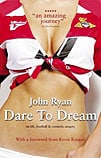 On Life, Football & Cosmetic Surgery
On Life, Football & Cosmetic Surgery
by John Ryan with John Brindley
Scratching Shed, £15.99
Reviewed by Glen Wilson
From WSC 281 July 2010
"Just a lad from a Doncaster council estate", John Ryan made his money in cosmetic surgery, not as a surgeon, but as a salesman. As he himself says: "I've always seemed to have the ability to persuade people to do what I want." So we can all be thankful that he chose to channel his powers to resurrecting his hometown football club rather than becoming the world's first true super-villain. A life-long supporter, Ryan has taken Rovers from their lowest point to their highest, and all in little more than a decade.
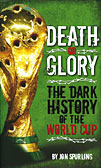 The Dark History Of The World Cup
The Dark History Of The World Cup 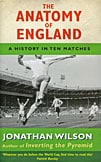 A History In Ten Matches
A History In Ten Matches 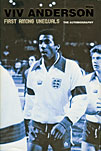 The Autobiography
The Autobiography 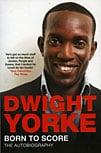 The Autobiography
The Autobiography